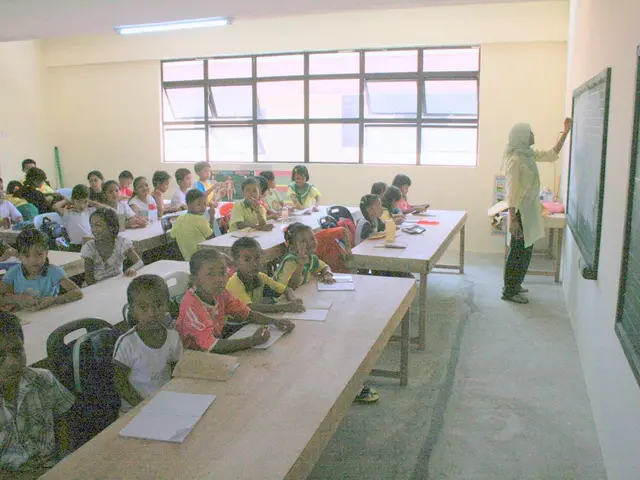Parenting Approach of RIE: Understanding, Implementation, Advantages, Disadvantages
New to parenting? It can be a real toughie! From sleepless nights to changing diapers and handling tantrums, the initial years are the hardest. Even though you might not know it, you're probably following a parenting style already. If you have a needy newborn or a testy toddler, and you're feeling overwhelmed, you might want to consider the RIE (Resources for Infant Educarers) parenting approach. It focus on treating children with respect and attention to their emotional and cognitive needs, which could make your parenting journey a whole lot easier.
RIE parenting method has been around for a while, but it's gaining popularity today. It was developed by Magda Gerber, an early childhood educator who observed that kids learn best in a safe, relaxed, and emotionally connected environment[1]. At the heart of RIE is respect for children—for example, not picking them up without telling them first, talking directly to them and not over them, and giving them time to respond[2].
So, how does RIE work? It encourages parents to step back and let their kids explore and discover on their own. Kids are naturally curious, and the RIE method helps them take advantage of that curiosity. For example, instead of just changing a diaper, you can let your child pick their legs up and watch as you change it. You become a guide, not a boss[3].
RIE also emphasizes communication. When you're changing a diaper, feeding your child, or introducing them to new activities, you should talk to them and explain what's happening[3]. This helps kids understand what to expect and feel more prepared. By thoughtfully narrating each stage of the learning process, kids learn through cues and behaviors naturally.
RIEParenting also encourages expression of emotions. Instead of panicking when your baby cries, RIE parenting allows your child to feel and experience a range of emotions. It teaches them not to bottle up their feelings and cope with them in a healthy way[3].
Lastly, RIE parents set a good example for their kids. Parents who follow the RIE method often take care of themselves, exercise, and stick to their schedules. Kids tend to emulate this behavior, so it's a great way to teach them discipline and responsibility[3].
Here are some ways to implement RIE parenting:
- Set aside time for solo play: Give your child the freedom and creative space to explore their interests.
- Spend time observing your child: Pay attention to what your child is doing when they're engaged with self-learning.
- Consistency is key: Be consistent with rules, schedules, and rewards to motivate your child.
- Collaborate with your child: Don't just teach your child, work alongside them in daily activities.
- Be your child's best friend: Build a strong relationship with your child by listening to them and playing with them.
What are the pros and cons of RIE parenting? The advantages include faster development, emotional intelligence, cognitive development, enhanced creativity, and boosted imagination[5]. However, some disadvantages include a lack of touch, too much free time, the risk of children taking the benefits for granted, and potential delays in meeting developmental milestones[5].
Ultimately, RIE parenting may not be suitable for everyone, but it's worth a try.[6] Consult other parents who have adopted this approach to get a better understanding of its benefits and drawbacks. Remember, the best life lessons are delivered through experience!
References/Resources:
- RIE - The Educaring Approach
- Magda Gerber Legacy - FIRST RIE BROCHURE
- Taylor & Francis Group - The Educaring Approach of Magda Gerber
- Psychology Today - The Educaring Approach of Magda Gerber
- American Psychological Association - 5 Types of Parenting Styles - and Which One Fits You
- WebMD - The 12 Types of Parenting Styles
- Embracing the RIE parenting approach, which emphasizes respect, communication, and self-discovery, can contribute positively to a child's health-and-wellness by fostering faster development, emotional intelligence, cognitive development, enhanced creativity, and boosted imagination.
- In the realm of science, specifically parenting, the RIE method follows the belief that children learn best in a safe, relaxed, and emotionally connected environment, aligning with the principles of various health-and-wellness approaches that prioritize discipline, self-expression, and attachment-focused parenting practices.








